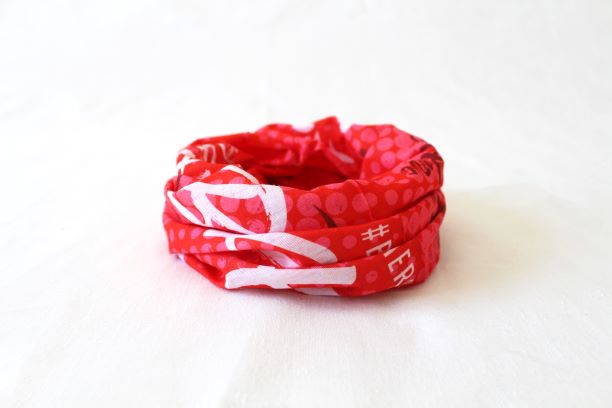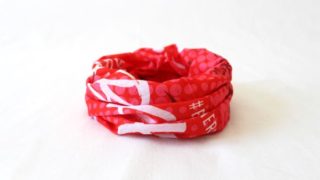Support Sunflower Day on 13 November and give hope to people who need stem cell transplants
“Try not to worry about tomorrow. Live in the moment and enjoy everything – the colours, the tastes, the smells, the kindness of family and strangers. This attitude can get you through tough times. Hold on to your energy. When times are toughest, rest and dream,” Ray Funnell, cancer survivor.
Donor recruitment centre and stem cell registry, The Sunflower Fund partnered by DKMS, reports that four out of 10 blood disorder patients do not find stem cell matches. For most people, a transplant is their only hope of survival, which is why donating stem cells is so urgently needed.
Three stem-cell recipients talk about their battles with cancer and transplants that helped save their lives. Their stories highlight the importance of the work conducted by The Sunflower Fund partnered by DKMS over the past 20 years in its drive to raise funds for the fight against blood disorders such as leukaemia and sickle cell disease.
The testimonials of Ray Funnell, Sharleigh Wilken and Vivian de Klerk come ahead of The Sunflower Fund’s annual Sunflower Day, which will be held on 13 November this year instead of the third Friday of September, a necessary change due to Covid-19 lockdown restrictions.
Every year, funds raised from the sale of the versatile Tube of Hope (TOPE) – headband, mask, scarf, cap or armband – go towards helping recruit stem cell donors, as well as towards a patient support fund, which helps patients who need financial assistance in getting to transplant.
South African Defence Force employee, Vivian de Klerk, has been in remission for 10 years. Diagnosed with an acquired genetic disease, paroxysmal nocturnal haemoglobinuria (PNH), at the age of 23, she was terrified when she heard there was no cure for it other than a blood stem cell transplant.
She says she was on the waiting list for a transplant for almost three years. “During this time, I was dependent on regular blood transfusions to keep me alive. I sometimes felt negative as being ill left me with minimal energy and unable to actively be part of the search for a suitable donor.
“When my three brothers tested negative and there was no matching donor on the South African database, I had to dig deep to not lose hope. Luckily, I had family, friends and The Sunflower Fund to support me during the years of waiting. I finally received the life-changing call that there was a matching donor in Germany,” she explains.
Soon after the transplant, de Klerk began to recover and was able to start exercising, completing the Fish River Canyon hike a year later. In 2014, she took part in the South African Transplant Games in Cape Town. In 2015 she went as far as to compete in the World Transplant Games and took home several medals for various sports.
Vivian urges South Africans to become donors. “If it wasn’t for my donor, I would probably not be alive today. To have a strong donor community allows more people to live a healthy life after being diagnosed with cancer or a bone marrow disease.
“Because of our diverse and unique genetic make-up, we need more South Africans to register as stem cell donors. You might just be the match that someone is waiting for. Hope begins with you!” says de Klerk.
When consulting engineer, Ray Funnell, first found out he had leukaemia, he initially felt shock and disbelief. He also worried about the wellbeing of his family and how he would react to treatment. Luckily, his brother was a matching donor and Funnell was overwhelmed with emotion when he knew he had been given a second chance.
He says the process of undergoing a stem cell transplant was simple. “I actually fell asleep during the transfusion process.
Funnell still had a long battle ahead of him, but when he eventually regained his health, he says his attitude changed forever. “I overflowed with gratitude for the kindness of all the medical staff, blood donors, platelet donors and my brother for all their life-giving gifts.
Funnell also stresses the importance of the donor community. “I consider myself fortunate to have found a donor match with my brother. However, I realise that if we were not a match, I would have needed to find the help of the donor community. Every registered stem cell-donor brings hope to people like me facing a life-threatening blood disorder and requiring a stem cell transplant.
Like Funnell, Sharleigh Wilken was devastated when she received the diagnosis that she had Acute Myeloid Leukaemia (AML). “I struggled between feeling emotionally overwhelmed and powerless alternated with an uprising of strength and focus, without ever finding an exact balance.”
Wilken initially underwent a gruelling treatment process of chemotherapy and blood and platelet transfusions and suffered two strokes before finding out that cancer had spread to her spinal fluid.
Several lumbar punctures, more chemo, a punctured lung and being paralysed from the neck down did not stop Wilken from having faith in God and feeling hopeful. Only after she began to recover was Wilken ready for a stem cell transplant, but her doctor was unable to find a matching donor. Miraculously, she was able to have her own cells harvested, which were successfully transplanted in 2014.
Now in remission, she says the synonym for the word ‘remission’ is ‘freedom’. “It is a nine-letter word that closes doors and opens new ones. It is also what every family member around you hopes to hear.
She goes on further to say that the Sunflower Fund partnered by DKMS plays a crucial role in growing the stem-cell donor registry to help save lives. “The team works tirelessly to spread awareness of the need for donors and also raises funds to help cover the costs of the tissue typing tests.”
To register as a Stem Cell Donor or to find out more about becoming a donor visit: sunflowerfund.org/be-a-donor/
Brandstories Disclaimer:
Brandstories is not liable for the contents of the information published on this platform. The information which subscribers publish on this website is for general information purposes only and Brandstories facilitates the ability for viewers and subscribers to access this platform. Subscribers who publish their content on Brandstories are held responsible for their own content. This includes ensuring that it is factually accurate, grammatically correct, free of spelling errors, and does not contain unsavoury content that could result in legal action. In the case of linguistic translations, the onus is on the client to ensure that the translation is accurate. In no event does Brandstories make representations or warranties of any kind, expressed or implied about the completeness, accuracy, reliability, suitability or availability with respect to the information supplied and published. This website includes links to other websites, including third party websites. Brandstories does not recommend, endorse or support any views that are held by subscribers publishing information, and within these links provided. Furthermore, Brandstories does not have control over the nature, contents and availability of information contained on these sites. Any form of reliance readers and consumers may place on information published on Brandstories is strictly at their own risk. Brandstories makes every effort to ensure that the website is up and running smoothly at all times, however Brandstories does not take responsibility for, and will not be held liable for times when the website is temporarily unavailable due to technical glitches that are beyond our control.


